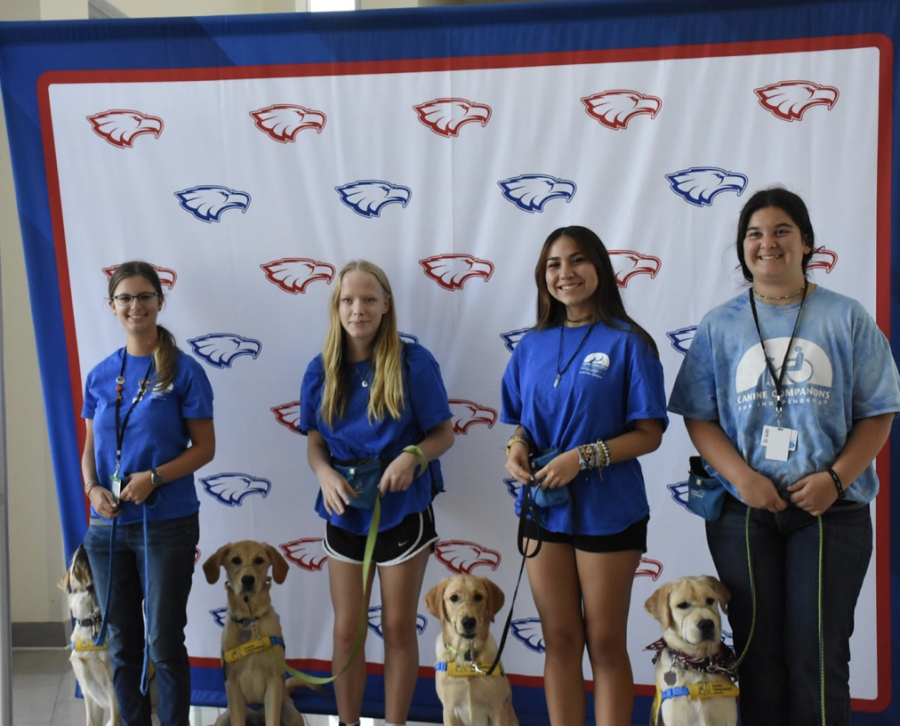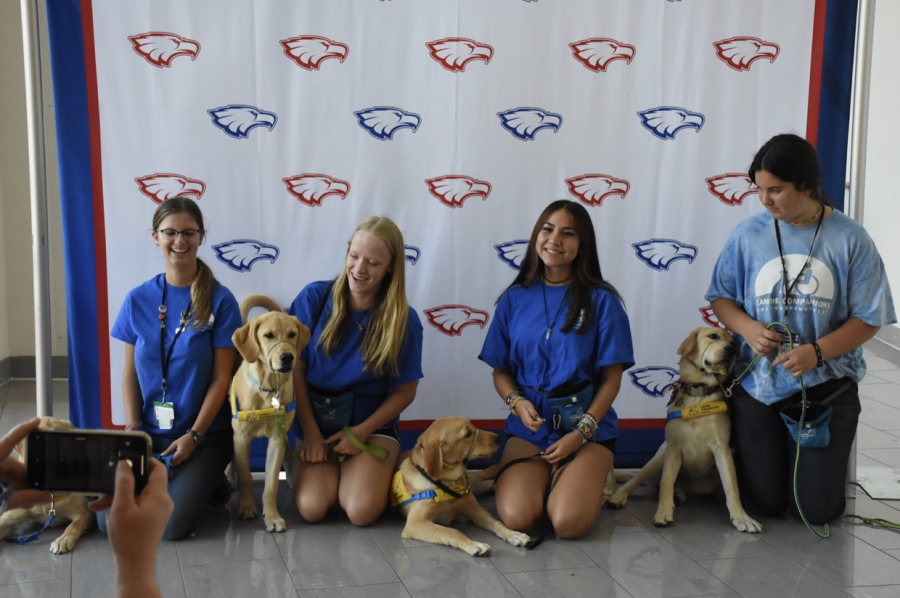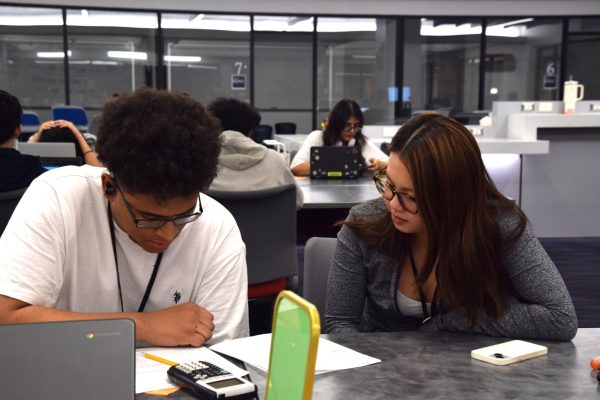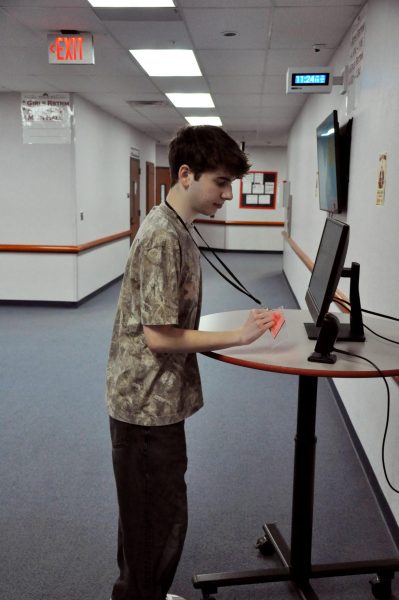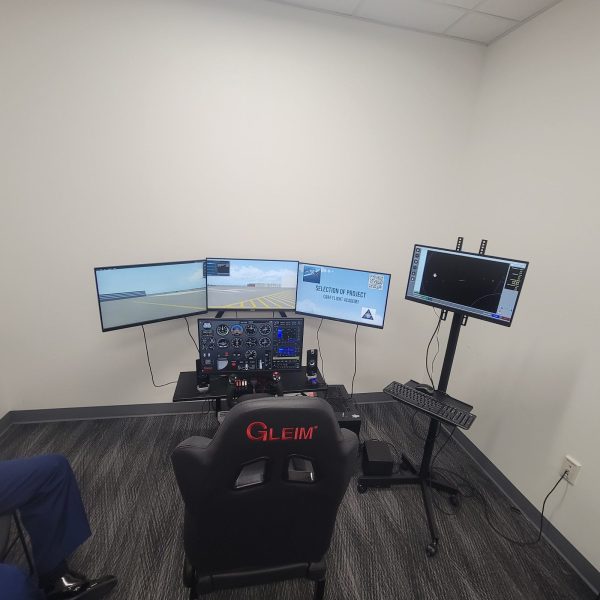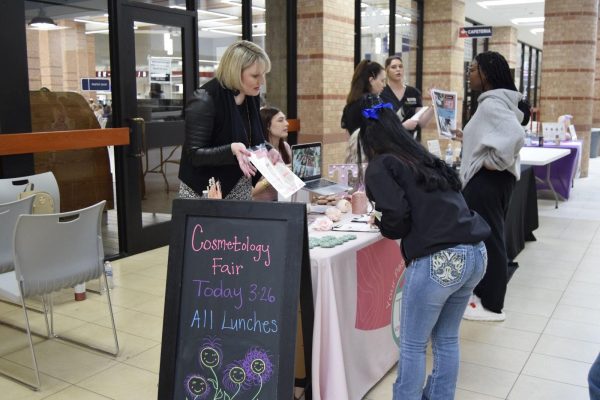Puppies with Purpose
“A kindergarten class.” That’s how Agricultural Sciences teacher Stacy Schertz describes the lively group of golden retriever lab mixes who, amusingly, can’t sit still for a photo. But they are more than just adorable puppies. Since they have been flown in from California at eight weeks old, these dogs have been working alongside their diligent trainers to eventually serve those with physical or mental disabilities.
Canine Companions International (CCI) is an organization that provides these dogs for trainers who must first go through an extensive application process. For students, Schertz begins by checking for basic qualifications like academic and discipline record, completion of agricultural science classes and passing of a knowledge test about CCI. Then, an Irving CCI Puppy Director sends out written and phone interviews to chosen students. Additionally, a house inspection is performed to ensure that the potential trainers have certain provisions like exercise space.
“I tried to over prepare,” senior Samantha Ferraro said. “I tried to watch tons of puppy training videos and obsessed over it for a while. Once I got the puppy I felt way out of my depth. The first few weeks [I thought] ‘What am I doing, what am I supposed to do with a new, eight week old puppy?’ It was a lot. Slowly we got into routine over the summer, started training the basics like eye contact and learning her name.”
The dogs can switch, like night and day, from obeying the precise command cue to playing like normal puppies. At times it’s hard to believe the bubbly animals are technically working and will soon learn 32 commands. It was only just a few days earlier when a rambunctious playtime in Schertz’s room cost one of the dogs, Mary, a tooth. At the training class though, Mary stands straight, concentrating on her trainer, Ferraro.
“For [my dog], a big struggle has been with staying in a certain position, but with the work that I’ve put in, like all the amount I’ve been training with him, he’s gotten better with it,” senior Isabella Vinas said.
Since the dogs are becoming an integral part of the trainer’s lives, it’s no surprise that Ferraro said she has found herself becoming attached to Mary. A year from now, the student trainers will hand the leash over to CCI, where the dogs will hopefully care and provide for their new owner.
“It’s definitely a rewarding feeling knowing that I can work through those little bumps in the road with [the dog] and that he will eventually become a service dog for someone who needs him,” Vinas said. “That’s something I like to think about, too. I’m helping somebody in the future by providing [the dog] for them. This is his first step.”
The learning process is gradual and involves both quick, daily sessions of 5-10 minutes to consistently reinforce technique and monthly puppy training sessions. These can be at AHS or at CCI’s chapter in Irving. It is agreed upon by the program’s members that the dogs are impressively smart.
“I gradually guide him into the cue and then I mark the cue with a command, and that’s when I start to associate the word that you give them to the action, and therefore they start getting more familiar with it,” Vinas said.
An important goal for Schertz is to expand the program at AHS. She plans to promote CCI at AHS with videos and already more students are taking interest. Some attend and observe the puppy classes to get familiar with training. This is the second set of puppies, and the number has grown from two to four. This year, more preparation was put in ahead of time to make students more comfortable.
“Students had a full year of training last year,” Schertz said. “People had volunteered to bring their dogs. Graduates who actually live with their service dogs and have a need for them would bring the dogs so students could train hands-on, so they had that building forward.”
There are challenges that come with being responsible for an animal, but to have an added expectation to instruct the dog with numerous commands, the trainers’ job becomes twofold.
“I honestly thought it was going to be really hard,” Vinas said. “I was nervous I was going to be judged if my puppy couldn’t do a certain command. Now I’m learning that they understand that all puppies are different and that they all have their certain quirks and speeds of learning. It’s taught me to be consistent.”
Fortunately, the school is an excellent environment for the dogs. They are constantly faced with situations, such as socializing, elevators or large crowds, that will benefit them in their future careers. The trainer, as a student with other assignments, has to work even harder, but in the end it’s hard to forget that they’re raising the dog for something bigger. Schertz said she can see that her students are already making that connection.

"I enjoy ballet, reading and finding great music. I want to have a career in medicine and travel everywhere. I hope that by being on the newspaper team...


